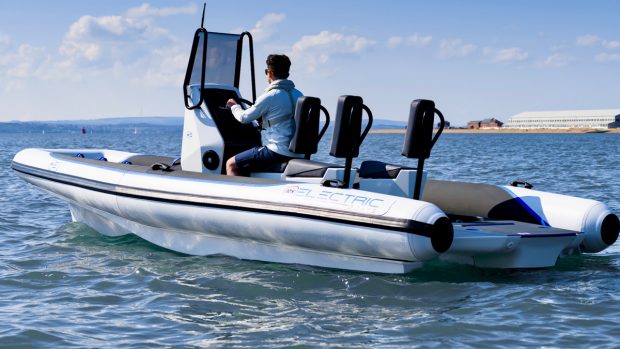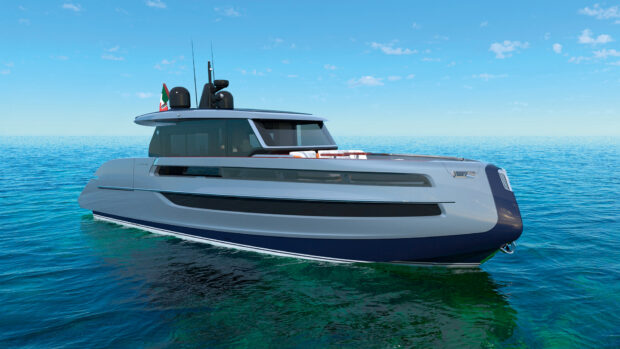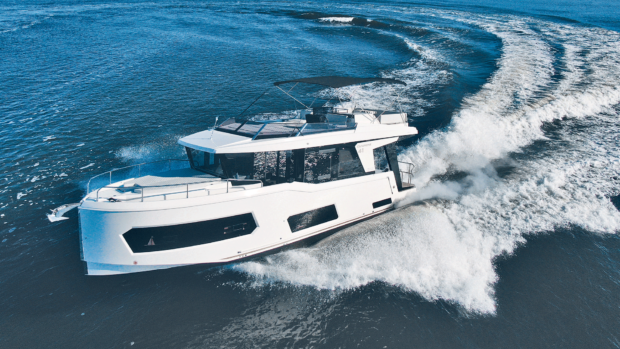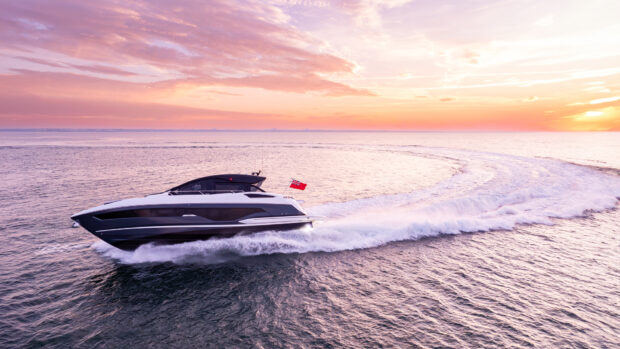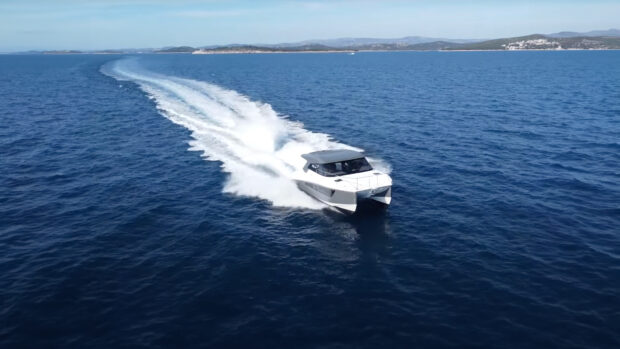Boat owners have until 15 December to respond to a call for evidence over management plans for Studland Bay, which could see all sailing and watersports banned...
The UK Government has issued a call for evidence over management plans for Studland Bay in Dorset which could see all watersports, sailing and boating activities banned.
Studland Bay was designated a Marine Conservation Zone (MCZ) in 2019.
At the time, the Government said that anchoring and mooring would need to be managed to protect the seagrass beds.
Now the Marine Management Organisation (MMO) is looking at how to manage the site, and boat owners have until the 15 December to respond.
CLICK HERE TO RESPOND TO THE CALL FOR EVIDENCE
Based on the advice of Natural England, the MMO said its draft assessment had determined that the seagrass, the subtidal sand features and the long-snouted seahorse, which are found at Studland, are all ‘sensitive to the impacts from mooring and anchoring’.
It has drawn up a range of management options for anchoring, mooring and sailing in Studland.
The MMO has made clear that no management of anchoring or mooring is an option, due ‘to the levels of anchoring activity occurring at the site as well as the evidence for the damage caused by anchoring on the features of the site.’
It is proposing the following:
Management options for anchoring
Option 1: No additional management. Introduce a monitoring and control plan within the site
Option 2: Voluntary no anchor zones. This option would involve boat users voluntarily avoiding specified areas to drop anchors.
Option 3: No anchor zones. This option would involve boat users being prohibited to drop anchor in specified areas via an MMO byelaw.
Option 4: Prohibition of anchoring. This option would involve boat users being prohibited to drop anchor within the whole MCZ via an MMO byelaw.
Management options for mooring
Option 1: No additional management. Introduce a monitoring and control plan within the site.
Option 2: Voluntary use of advanced mooring systems for mooring applications. This option would involve marine licence applications for new moorings voluntarily installing advanced mooring systems that have minimal impact on the seabed.
Option 3: Prohibit use of ‘traditional moorings’, only allow use of advanced mooring systems. This option would involve prohibiting use of ‘traditional moorings’ (for example, standard swing or trot moorings). Only the use of advanced moorings systems would be allowed, with installation subject to a marine licence application.
Option 4: No mooring zones. This option would involve boat users being prohibited to moor in specified areas via an MMO byelaw.
Option 5: Prohibition of mooring. This option would involve the prohibition of moorings within the MCZ via an MMO byelaw.
Management options for powerboating or sailing with an engine (launching and recovery, participation)
Option 1: No additional management. Introduce a monitoring and control plan within the site
Option 2: Voluntary speed restrictions within the MCZ. This option would involve voluntary speed restriction for powerboats and sailing boats with engines within the MCZ in order reduce the levels of underwater noise.
Option 3: Speed restrictions within the MCZ. This option would involve implementing speed restriction for powerboats and sailing boats with engines within the MCZ in order reduce the levels of underwater noise.
Option 4: Prohibition of powerboats and sailing boats with an engine within the MCZ. This option would prohibit the use of powerboats and sailing boats with an engine within the MCZ.
Management options for sailing without an engine (launching and recovery, participation)
Option 1: No additional management. Introduce a monitoring and control plan within the site
Option 2: Prohibition of sailing boats without an engine within the MCZ. This option would prohibit the use of sailing boats without an engine within the MCZ.
Management options for recreational diving and snorkelling
Option 1: No additional management. Introduce a monitoring and control plan within the site
Option 2: Introduce code of conduct for recreational diving and snorkelling within the MCZ. This option would involve introducing a code of conduct for diving and snorkelling activities within the MCZ, communicated, for example through signage and public guidance.
Option 3: Prohibition of recreational diving and snorkelling within the seagrass feature of the MCZ. This option would prohibit recreational diving and snorkelling within the MCZ.
The MMO has said that if management measures are required, there will be further consultation with boat owners and other stakeholders.
The MMO is also considering management options for four other MCZs: The Canyons, which lies 330km from Land’s End; Dogger Bank Special Area of Conservation (SAC); Inner Dowsing, Race Bank and North Ridge SAC off the south Lincolnshire coast; South Dorset MCZ.
The RYA has stated that it will campaign against anchoring restrictions at MCZs, including at Studland Bay, believing it can be avoided as long as boaters follow best anchoring practice.
Managed anchoring has not been introduced at any MCZ to date.
Studland Bay studies
The Boat Owners Response Group (BORG), which promotes the right of navigation, anchoring and mooring for boaters in the context of MCZs, has said there is little research on the impact of anchoring in seagrass.
It added that studies at Studland Bay had showed that where moorings had been laid in clean sand, seagrass had grown up around them up to the perimeter of the low water scope of the mooring gear, suggesting that the impact of moorings on the vegetation ‘is much less than claimed’, a view disputed by some scientists.
Studland Bay is one of the busiest sea anchorages in the UK.
Many believe enforcing an anchoring ban would be difficult and banning boats from the bay could harm the local economy.



